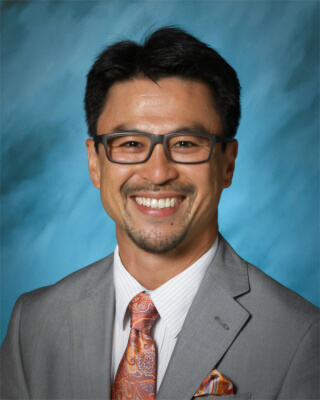Duke Truong

The leadership skills that we learned could be applicable to anything in your job. Looking at all of your data before you make a decision, collaborating with other people — these are skills that I draw upon daily.
Duke Truong and his family moved from Vietnam to Seattle when he was in the fourth grade. He had trouble adjusting to the language, culture and schooling of his adopted country.
At one point, young Duke was actually expelled from middle school. But encouragement from a few teachers and an administrator during those difficult times played a crucial role in his later decision to become an educator, and to focus on helping disadvantaged and marginalized youth.
After working as a teacher for about a decade, Duke decided he wanted to enter educational administration. He chose the Danforth program at the University of Washington, in part because of the values it emphasizes.
“One reason I chose Danforth was its focus on social justice, which is a very personal issue to me,” he said. “This focus made all the difference in fully realizing my potential and is essential to who I am as a professional.”
Duke, a member of the Danforth 25 cohort, talks in this interview about how the program prepared him for the many challenges of being a school administrator in the 21st century.
How did the Danforth program help you develop key leadership skills and core values?
The class discussions were always around the challenges of being an administrator. These weren't challenges that a technical solution could easily be applied to, but authentic, organic challenges. We spent quality time focusing on the struggle to provide the best education possible and to support students who need a lot of social-emotional support.
It was very impactful for me. I've learned so much about who I am as a person and my beliefs for what education can provide for all students.
So you feel that Danforth was good preparation for the job?
Absolutely. I don't know if there is one best way to prepare you for all the things that come at you as principal. But the strategies of how to have those difficult conversations when they come up in the moment, how to organize your time and how to make the most out of your classroom observations and instructional conversations with teachers – there were a lot of pieces that tied into the logistics of the job that prepared me well for walking into my current position.
What were the Danforth instructors like?
They were fantastic, very attuned to our needs as a group. For example, while the instructors clearly had a plan, if our conversation led toward a specific part of the lesson, they immediately adjusted the lesson to fit our needs. We felt important, like we were listened to and that the class was tailored for us. If you needed more input on an individual level, the instructors were readily available for discussion or just to lend an ear as you worked out your own pedagogy.
Did you find the integrated internship model in the program to be valuable?
Yes, the internship was an integral part of the success of the program. Regardless of which course we were taking, we could find multiple components in the coursework that tied directly with our internships. For example, when I was taking the course on school culture, there would be an assignment — not an artificial assignment, but a real assignment — on what the school culture was at the site of my internship.
Was it difficult to balance all the responsibilities of the program, including class and the internship, as well as your regular job?
It was very challenging, but I felt supported every single step of the way. We had mentors that came to our internship site on a regular basis. We were free to call them at any time and to talk about anything we felt we needed to. Also, we could connect and share experiences with other cohort members who were also interning, for example, in a middle school.
Do you think the Danforth experience will help you in your career over the long term?
Definitely. Because you spend so much time with your cohort members, you feel very connected with them. There was also a tremendous network of support from previous cohort members who shared in the program's teachings and experiences.
The leadership skills that we learned could be applicable to anything in your job. Looking at all of your data before you make a decision, collaborating with other people — these are skills that I draw upon daily.